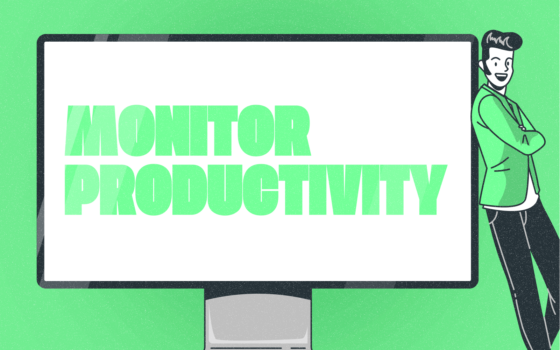
The relationship you create with individual subordinates determines your ability to fulfill three key managerial responsibilities: creating a feedback-based culture, building a cohesive team, and achieving results together.
But these relationships do not follow the rules that establish different relationships in our lives; they remind you of balancing on the rope. You must take personal care without overly personal relationships or simply trying to be a popular leader. You must challenge your employees in an open way and tell them when they are not getting enough results without being an asshole or creating a vicious circle that leads to despondency and failure. Only that it is difficult to do in practice.
Showing personal care and at the same time open challenge will help you get on the path to success as a leader. The term that I use to describe a good relationship between manager and subordinates and the ability to simultaneously deal with problems is a radical honesty. So, what can you do to build a relationship with each of your subordinates that is based on radical honesty? What are the pitfalls to avoid?
Do not focus on creating friendly contacts.
Instead, listen and take care. Too often, managers act as if relationships are created and repaired at corporate parties or during other social events and are destroyed at work. If the only way to build relationships with your employees is through social contact, it will be one of two things: you won’t have enough time for your work or social commitments, they will fill your evenings and weekends, so you won’t have a life outside of work.
Instead of taking part in regular lunches, dinners or other fictitious events, the best way to build a good relationship with your employees is to make them feel heard. I will never forget the words of an entrepreneur whose company was bought for hundreds of millions of rubles. He left less than a year after its acquisition, leaving behind a huge personal property. Why? With tears in his eyes he complained: “nobody listens to me here”.
I know what he meant. In this case, the problem was that my boss could not listen. His inability to listen meant that thousands of conversations under his supervision were meaningless.
So make sure you know what your employees think. Get feedback from your employees and show them that you care about them. The first step is to have effective individual meetings. Make sure your subordinate decides on his or her agenda, not you. Make sure that your attention becomes something tangible. Showing what you are listening to is important not only to your relationship with individual employees, but to everyone who works for them. Only the combination of these relationships creates a true, self-reinforcing culture that helps you achieve results.
Happy work is also a place where you can learn something about yourself.
You can be honest and take care of the employee at the same time – there is no contradiction.
Instead, focus on feedback. Your employees don’t really care about chatting with you about sports, weather, politics or TV programs. They want their boss to be the person to help them develop professionally. People develop the most when they make mistakes. This means you will build better relationships, share feedback, and not get into barren chitchat. Remember that feedback includes both praise and criticism. Praise your employees as early as possible, often and publicly. In particular, show what was good and why. Speak honestly – and if you do not think something, do not say it. Remember that the purpose of praise is not to pump ego, but to support learning and development.
Creating a relationship in the workplace is like balancing on a rope.
Do not focus on accessories.
Instead, focus on achieving results together. Extra vacation, free lunch, a great office – all this will create the impression of a haunting emptiness if your team fails, if it achieves wrong results or if your personal contribution to success is underestimated. Additional benefits can reflect and reinforce culture, but they cannot create it.
Instead of buying a ping-pong table, it is much more important to take the time to help team members develop new ideas; create a culture of discussion about relevant topics; clearly identify who owns the solution and why (so you don’t solve everything for yourself!); involve others, ensuring that employees have time to complete tasks and openly acknowledge and learn from mistakes. In this way, results are achieved together. Your relationship is deepened by collaboration, not by additional benefits.
Do not dwell on promotions.
Instead, focus on talking about your career. Helping your employees achieve their professional goals will definitely help you build better relationships. There is a career interview technique where all managers must pass three interviews with each employee according to the following guidelines:
- Listen to the employee’s life story and find out what motivates him/her at work;
- Ask the worker about his or her future dreams to learn what skills he or she needs to develop;
- Work together to develop a career plan that focuses on what motivates the employee and their life goals, rather than on the narrow and uninspiring prospect of their next promotion.
Summing up: the best way to build relationships with employees is to improve mutual cooperation, not to rest from work. Listen to your employees during individual conversations. Let them decide on the agenda for the meeting, but at the end get feedback on what you can start or stop doing to become the best boss. Leave feedback – both praise and criticism – to help your subordinates develop. Achieve results together, spending time discussing important decisions and understanding who makes them. Finally, talk about a career that will not focus narrowly on the next levels, but will help individual employees take steps to achieve their dreams.


